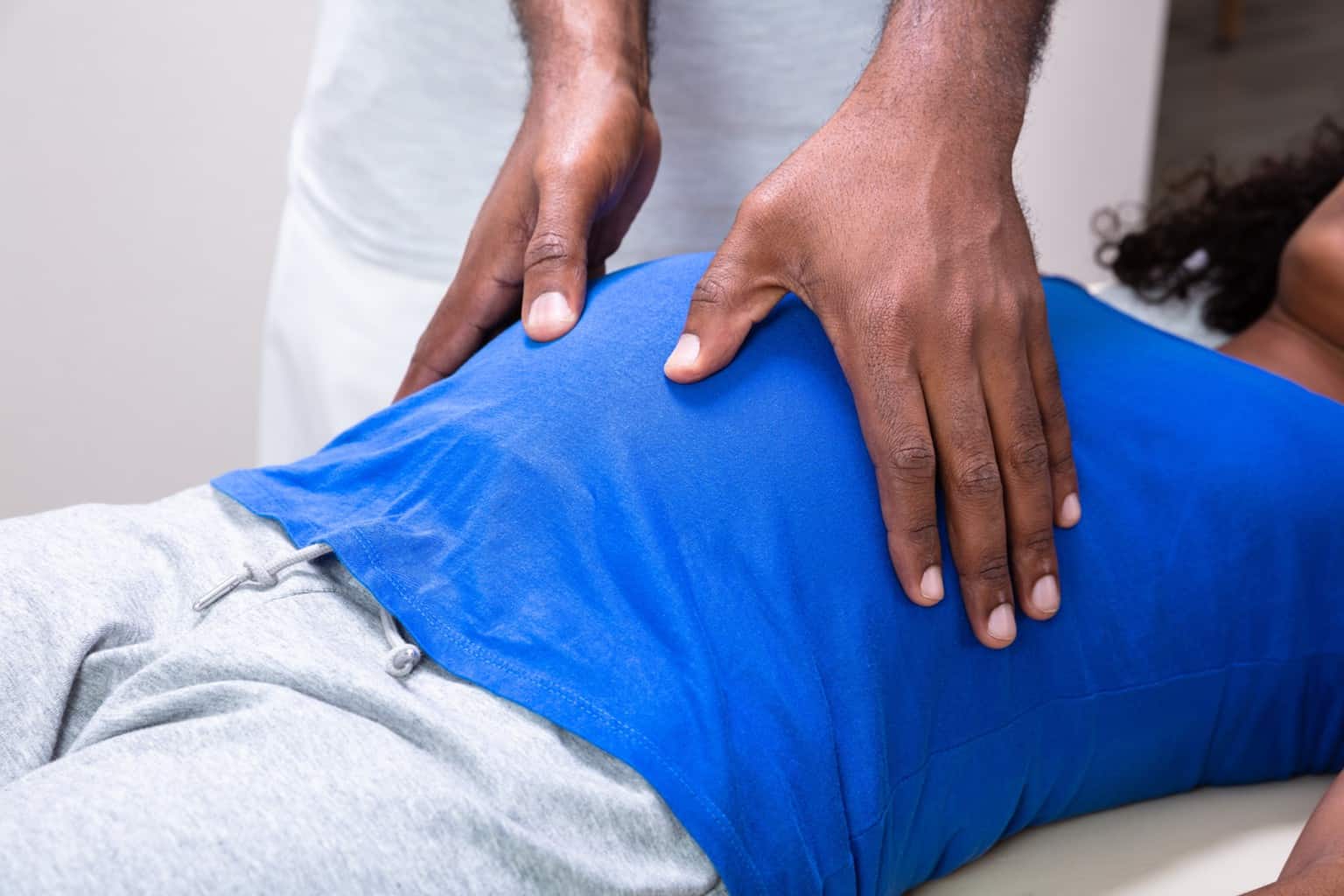
Pelvic Health Physical Therapy
Physical therapists are licensed clinicians trained to evaluate and treat neuro-musculoskeletal conditions. Pelvic health is a specialty area in physical therapy which addresses incontinence, pain, prolapse, pregnancy and post-partum.
Pregnancy and Post-Partum
Obstetric conditions that our physical therapists can evaluate and treat include:
- Prenatal musculoskeletal dysfunction
- Labor & delivery positioning for orthopedic conditions
- Postnatal musculoskeletal dysfunction
- Incontinence
- Breastfeeding support including positioning, postural education or blocked duct/mastitis management.
Hennepin Healthcare's physical therapists who specialize in pelvic health related to pregnancy and post-partum issues have developed a series of exercise videos targeting your specific needs. Access the exercise videos.
Download our post-partum recovery guide which can instruct you how to learn therapies to do in your home.
Incontinence
Incontinence is the loss of bladder control that results in urine leakage. Physical therapy can help alleviate these symptoms. There are four types of incontinence:
- Stress incontinence is the loss of bladder control that causes accidental urine leaking. Symptoms may include a sudden and uncontrollable urge to urinate, frequent urination, dribbling, bedwetting, not being able to control your bladder and leaking during exercise, sneezing, coughing, laughing. or lifting.
- Overflow incontinence happens when the body produces more urine than the bladder can hold, or your bladder can't empty. You may have frequent or even constant dribbling of urine.
- Urge incontinence is when you feel an intense urge to urinate and may cause accidents if you don't make it to the restroom in time. Sometimes you may have the urge when your bladder is empty. This type of incontinence may have an underlying cause like an infection.
- Functional incontinence occurs when other diseases or disabilities like dementia or arthritis make it hard to get to the toilet in time.
Pelvic Pain
Pain in the pelvic area, the lowest part of your abdomen and pelvis, can be caused by many different issues. You may experience pain after a surgery, from a musculoskeletal issue (bone or connective tissue), gastrointestinal (digestive) or gynecological problem. The pain can be dull or sharp and constant or happen just once in awhile.
Constipation
Although occasional constipation is common, it can interfere with life if it is chronic, meaning constantly recurring or lasting a long time. Symptoms of chronic constipation can include:
- Having fewer than three bowel movements a week
- Your stools are hard or dry
- Bowel movements can be painful making it difficult to pass stools
- Bloating
- Feeling that you didn't empty your rectum
Sexual Dysfunction
Physical therapy can also help with sexual problems such as pain during sex and erectile dysfunction.
Common pelvic health treatments
Improving body mechanics
The way you stand, sit, move and walk affects your pelvic floor. The physical therapist will assess your hips, low back, abdominals, and pelvic region. You will work on range of motion, alignment, and strength to improve pelvic floor function. The physical therapist will help you identify which body positions aggravate your symptoms and how to avoid them.
Manual therapy
This includes a variety of hands-on techniques to improve pelvis alignment, maximize spinal function, and reduce pelvic pain and muscle tension on the pelvic floor.
Biofeedback training
This training technique helps patients focus on strengthening or relaxing specific pelvic muscles. Isolating and controlling the correct pelvic floor muscles is an essential part of maintaining good pelvic health.

